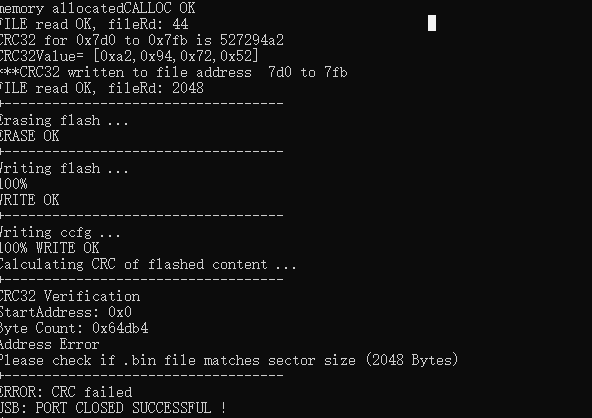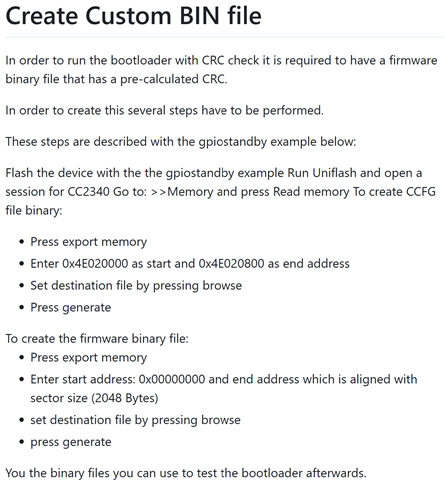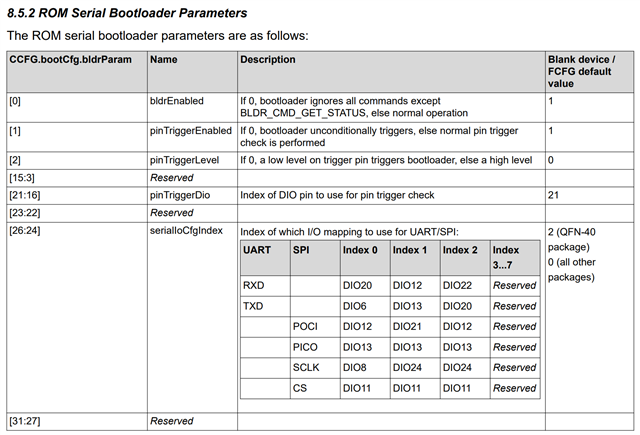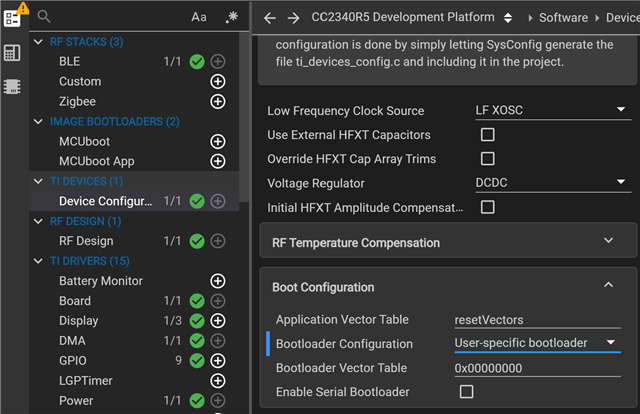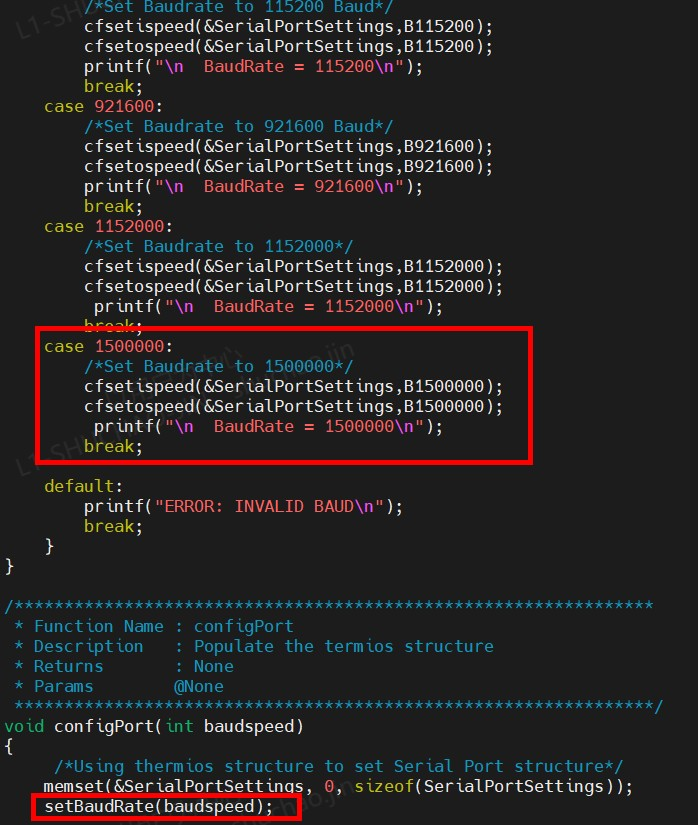Part Number: CC2340R5
Other Parts Discussed in Thread: UNIFLASH, SYSCONFIG
Tool/software:
When upgrading the CC2340R5 Bluetooth firmware via the serial port, the process fails during the CRC verification step, even though the flash erase and write operations were successful earlier. How should this issue be addressed?
